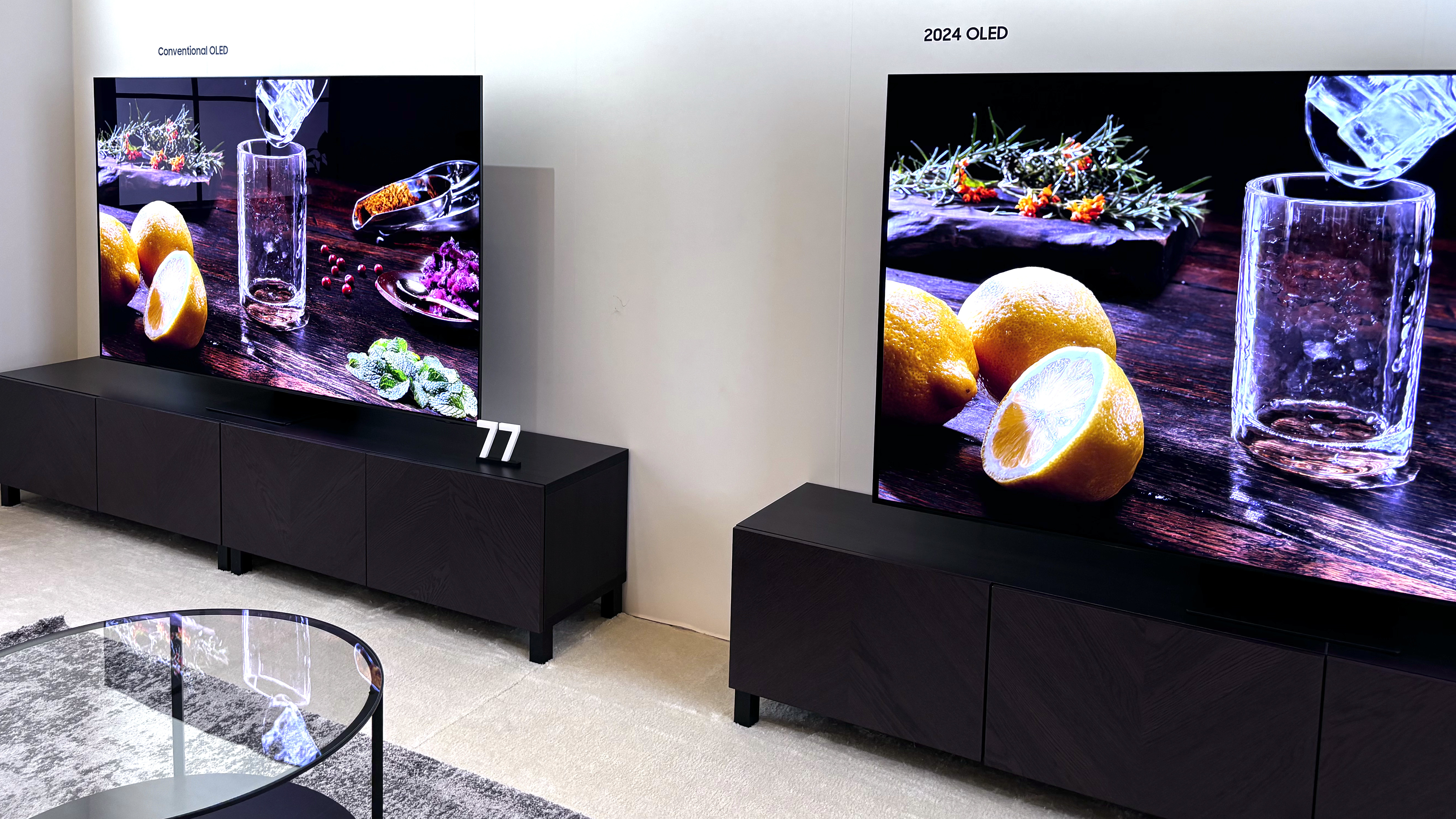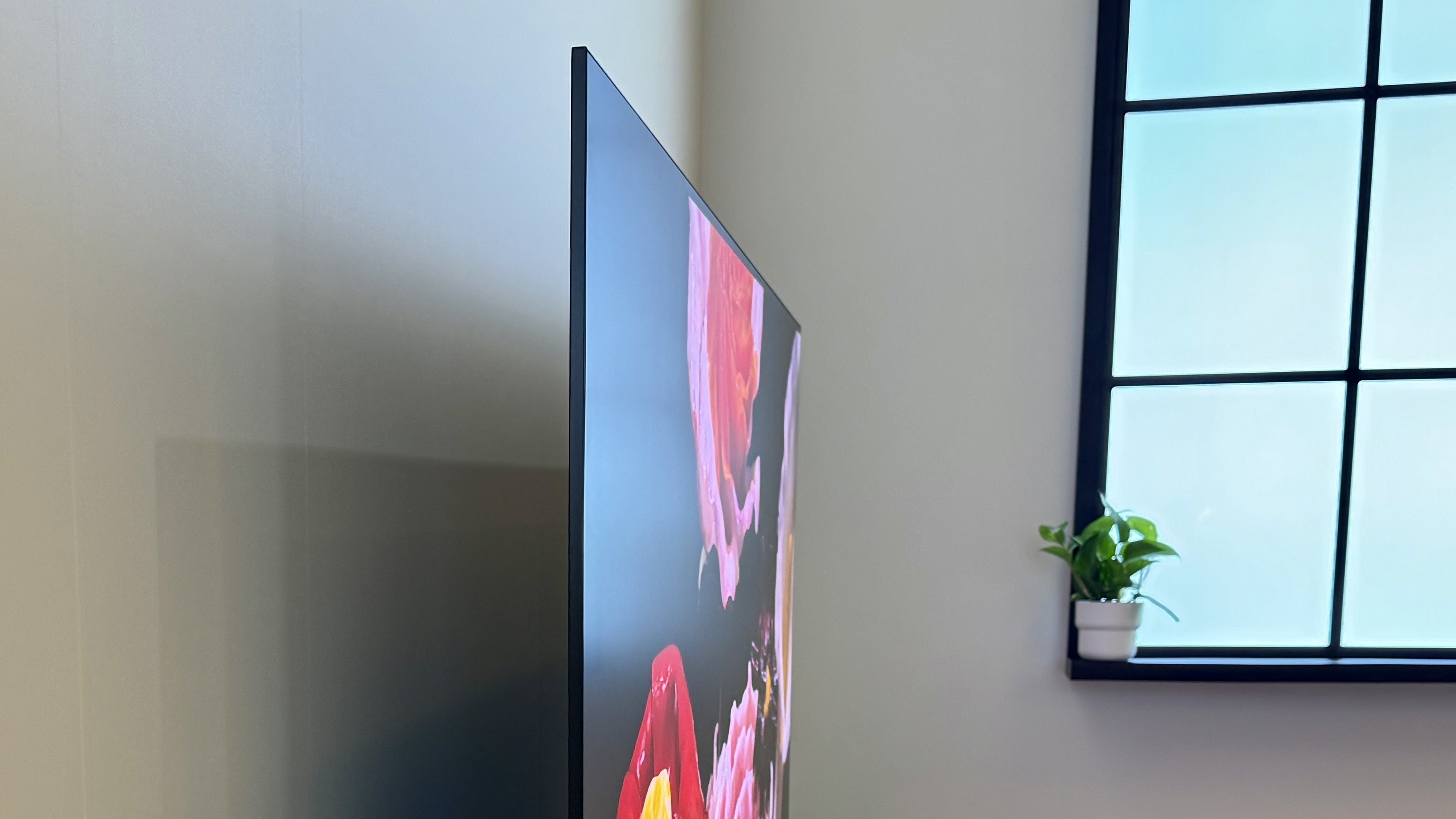
After re-entering the OLED TV space just two short years ago, Samsung is now raising the bar once again for the self-emitting panel technology with the world's first glare-free OLED TV.
The TV to finally make a breakthrough is the Samsung S95D, the sequel to last year's award-winning S95C OLED.
Why haven't OLED TVs done this before? Too thick of a filter reduces the overall brightness of the screen, which then negatively impacts color saturation. OLED TVs typically haven't been all that bright to begin with, so no TV maker (Samsung or otherwise) was willing to put a better filter on their OLED TVs.
And surprisingly, it actually works

Tom's Guide got a demo of the technology at the company's First Look CES 2024 event where an older OLED was placed next to the newer model, both of which were surrounded by "windows" (essentially large LED lights that simulated sunlight).
On the older OLED, the glare was obvious, but on the new S95D, the glare went from a defined structure to a very dim white light.
Of course, if you move far off-axis — more than 70 or 80 degrees — the glare once again becomes noticeable. The result isn't quite full-proof, but it's a significant improvement on an issue that's been plaguing OLED TVs for years. Having written extensively about it, I'm very excited that Samsung has finally figured out a solution.

Never let overhead lights ruin your movie night
Although most folks are very familiar with the effect of glare on a TV, it's simply the reflection of lighting on the glass or plastic front of the display. By adding a coating that reduces the reflectivity of the screen, Samsung mitigated the effects of glare.
Sign up to get the BEST of Tom's Guide direct to your inbox.
Get instant access to breaking news, the hottest reviews, great deals and helpful tips.
What's surprising isn't that Samsung simply applied an anti-glare coating to its OLED TVs — we've seen it applied to LED-LCD and Mini-LED TVs every year for the last decade-and-a-half — but it did so without impacting the overall brightness or color saturation of the screen. Yes, OLED still has problems with pixel degradation, but arguably glare was the second largest issue OLED TVs faced.
Besides the anti-glare coating, the S95D uses a newer processor compared to its predecessor and the latest version of Tizen. These aren't massive improvements on their own but, collectively, should be enough to make the S95D one of the best OLED TVs of 2024 — but we'll know for sure once we get it in for testing later this year.
Check out our CES 2024 hub for all the latest news from the show as it happens. Follow the Tom’s Guide team in Las Vegas as we cover everything AI, as well as the best new TVs, laptops, fitness gear, wearables and smart home gadgets at the show.
And be sure to check out the Tom's Guide TikTok channel for all the newest videos from CES!

Nick Pino heads up the TV and AV verticals at Tom's Guide and covers everything from OLED TVs to the latest wireless headphones. He was formerly the Senior Editor, TV and AV at TechRadar (Tom's Guide's sister site) and has previously written for GamesRadar, Official Xbox Magazine, PC Gamer and other outlets over the last decade. Not sure which TV you should buy? Drop him an email or tweet him on Twitter and he can help you out.
